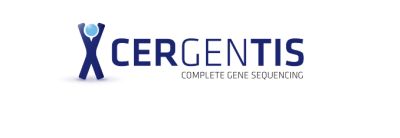Targeted detection and characterisation of chromosomal breakpoints in colorectal cancer
Cancer is a life-threatening disease. The biological and clinical impact of structural variants (SVs), i.e. rearrangements of large DNA segments within or between chromosomes, in cancer cells is largely unknown as technologies to detect them are lacking. Cergentis BV developed a technology for detecting SVs in cancer biopsies, which will be further developed into robust assays. The VU provides bioinformatics expertise, to determine the frequency and biological impact of SVs in each stage of colon tumor development. NKI provides colorectal cancer biology and biomarker expertise, to determine functional impact of SVs in organoid mini-guts and to explore how detection of these markers can be used to improve patient care.
Improving decisions who to treat (prognosis), how to treat (prediction) and when to treat (monitoring) is urgently needed. it is hypothesised that genes that are frequently affected by chromosomal breakpoint SVs are:
- Biologically relevant, requiring investigation of their role in tumorigenesis.
- Clinically relevant, requiring investigation whether/how they can be applied as prognostic, predictive and/or monitoring biomarker.
The ‘Target:SVs’ project aims to optimise Cergentis’ methodology for detecting SVs, which should result in SV detection in the majority of colorectal cancer samples. In this project, they will characterise the functional impact of SVs in colorectal cancer pathogenesis by applying machine learning approaches and by applying wet-lab approaches to investigate their role when disrupting gene function, using organoid mini-guts. They will explore translation of SVs in specific genes into prognostic and predictive tumor tissue biomarkers, and design SV-based liquid biopsy assays as cancer-specific monitoring biomarkers to measure treatment response.
This study will demonstrate the feasibility to detect chromosomal breakpoint SVs for translation into prognostic, predictive and monitoring biomarkers, to improve disease management of patients with (colorectal) cancer. Overall, the ‘Target:SVs’ project is considered successful when it leads to the design of one or more prospective biomarker validation studies.



